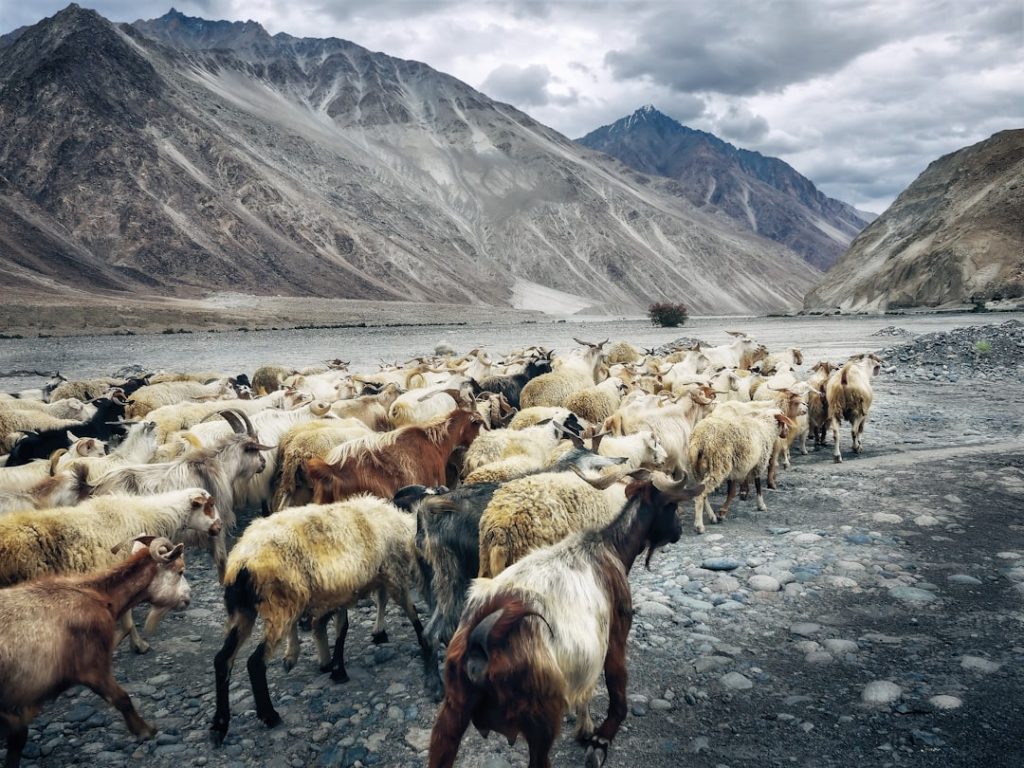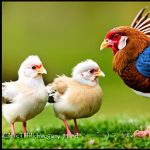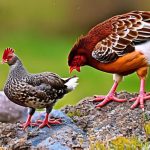Runner ducks and chickens are popular choices for backyard poultry enthusiasts. Runner ducks are characterized by their upright, penguin-like stance and distinctive running gait. They are a smaller duck breed known for excellent foraging abilities and good egg production.
Chickens are a common backyard flock staple, valued for their egg-laying capabilities, pest control benefits, and generally friendly nature. Runner ducks are particularly adept at foraging and can assist in garden pest control. Their egg-laying capacity makes them a valuable addition to backyard flocks.
Chickens come in numerous breeds, each with unique traits and varying egg production levels. They are also known for their pest control abilities and sociable behavior. While both runner ducks and chickens can be successfully integrated into a backyard flock, it’s important to note that they have different behavioral patterns and care requirements.
These differences should be taken into account when considering keeping them together in the same environment.
Table of Contents
- 1 Differences in Behavior and Needs
- 2 Considerations for Keeping Runner Ducks and Chickens Together
- 3 Housing Requirements
- 4 Feeding and Watering Considerations
- 5 Health and Safety Concerns
- 6 Tips for Successfully Keeping Runner Ducks and Chickens Together
- 7 FAQs
- 7.1 Can you keep runner ducks and chickens together?
- 7.2 What are the benefits of keeping runner ducks and chickens together?
- 7.3 Are there any potential challenges to keeping runner ducks and chickens together?
- 7.4 What should be considered when housing runner ducks and chickens together?
- 7.5 Do runner ducks and chickens have similar dietary needs?
Key Takeaways
- Runner ducks and chickens have different behaviors and needs, but can be kept together with proper considerations.
- Runner ducks are more active and require more space to roam compared to chickens.
- When keeping runner ducks and chickens together, it’s important to provide separate areas for nesting and roosting to avoid conflicts.
- Housing for runner ducks and chickens should have adequate space, ventilation, and protection from predators.
- Feeding and watering considerations for runner ducks and chickens should take into account their different dietary needs and drinking habits.
Differences in Behavior and Needs
Space and Environment
Runner ducks and chickens have different space and environmental needs. Runner ducks require access to a pond or shallow water source to keep them happy and healthy, as they love water and have strong foraging instincts. In contrast, chickens do not have the same affinity for water and need a dry, comfortable place to roost at night. Additionally, runner ducks are more active foragers and need plenty of space to roam and explore, while chickens are more likely to stay close to the coop and require a secure outdoor area to roam during the day.
Dietary Needs
Runner ducks and chickens have different dietary requirements. Runner ducks need access to water at all times, not only for drinking but also for cleaning their bills and nostrils. While chickens also need access to water, they do not have the same need for water as runner ducks. Furthermore, runner ducks benefit from a diet that includes more protein than chickens, as they are active foragers and need the extra energy. Chickens, on the other hand, require a balanced diet that includes protein, carbohydrates, and other essential nutrients to support their egg-laying abilities.
Meeting Their Needs
To keep runner ducks and chickens together successfully, it is essential to meet their unique needs. This includes providing a suitable environment that caters to both species, with access to water and a dry roosting area. A balanced diet that meets the nutritional requirements of both runner ducks and chickens is also crucial. By understanding and addressing their differences, you can create a harmonious and thriving environment for both species.
Considerations for Keeping Runner Ducks and Chickens Together
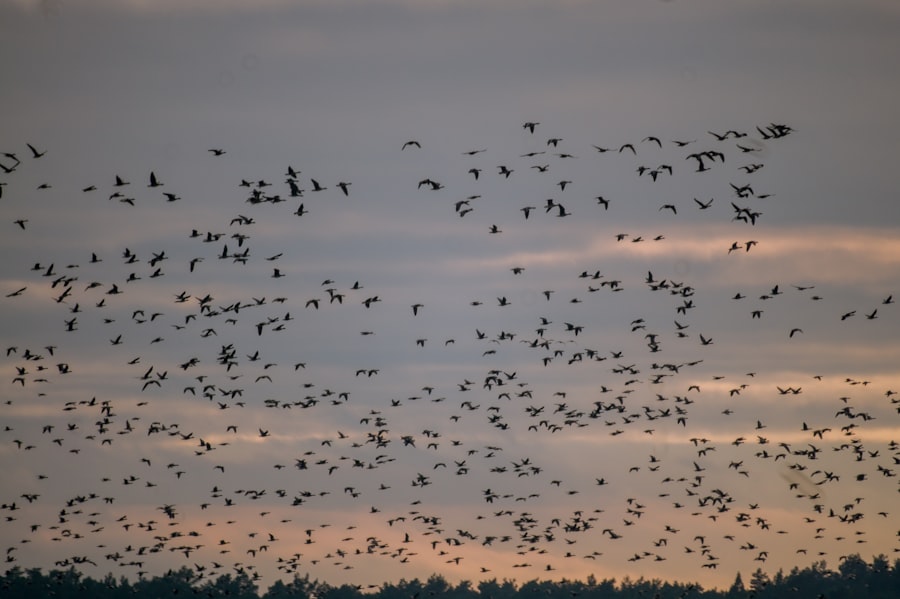
When keeping runner ducks and chickens together, there are several important considerations to keep in mind. First and foremost, it is important to provide adequate space for both species to roam and forage. Runner ducks are more active foragers than chickens and will need plenty of space to explore.
Chickens also need space to roam during the day, so it is important to provide a secure outdoor area for both species. Additionally, it is important to provide separate feeding and watering areas for runner ducks and chickens. Runner ducks have different dietary needs than chickens and will benefit from having access to water at all times.
Another important consideration when keeping runner ducks and chickens together is providing adequate shelter. Runner ducks will need access to water at all times, so it is important to provide a pond or shallow water source for them to swim in. Chickens, on the other hand, do not have the same affinity for water and will need a dry, comfortable place to roost at night.
It is important to provide separate housing areas for runner ducks and chickens to ensure that both species have access to the resources they need to stay healthy and happy.
Housing Requirements
When keeping runner ducks and chickens together, it is important to provide adequate housing that meets the needs of both species. Runner ducks will need access to water at all times, so it is important to provide a pond or shallow water source for them to swim in. Additionally, runner ducks will need a dry, comfortable place to roost at night.
Chickens, on the other hand, do not have the same affinity for water and will need a secure outdoor area to roam during the day. In terms of feeding and watering, it is important to provide separate feeding and watering areas for runner ducks and chickens. Runner ducks have different dietary needs than chickens and will benefit from having access to water at all times.
Additionally, runner ducks will benefit from a diet that includes more protein than chickens, as they are active foragers and need the extra energy. Chickens will need a diet that is balanced in protein, carbohydrates, and other essential nutrients to support their egg-laying abilities.
Feeding and Watering Considerations
Feeding and watering considerations are important when keeping runner ducks and chickens together. Runner ducks have different dietary needs than chickens and will benefit from having access to water at all times. Additionally, runner ducks will benefit from a diet that includes more protein than chickens, as they are active foragers and need the extra energy.
Chickens will need a diet that is balanced in protein, carbohydrates, and other essential nutrients to support their egg-laying abilities. In terms of feeding, it is important to provide separate feeding areas for runner ducks and chickens. Runner ducks will benefit from a diet that includes more protein than chickens, so it is important to provide them with access to high-protein feed or supplements as needed.
Chickens will also need access to high-quality feed that is balanced in protein, carbohydrates, and other essential nutrients.
Health and Safety Concerns
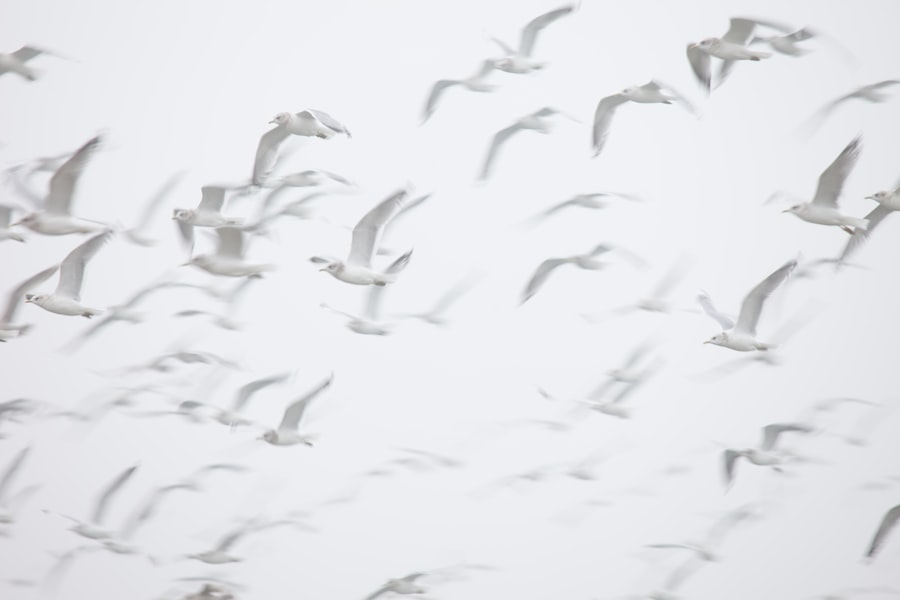
Health Concerns in Runner Ducks
Runner ducks are more susceptible to certain diseases than chickens, so it is crucial to monitor their health closely and provide them with regular veterinary care as needed. Additionally, runner ducks are more likely to suffer from foot injuries than chickens due to their upright stance and unique running gait.
Health Concerns in Chickens
Chickens are also susceptible to certain diseases and health issues that can impact their overall well-being. It is important to provide regular veterinary care for chickens and monitor their health closely to ensure that they remain healthy and happy.
Both runner ducks and chickens can benefit from a clean and safe living environment, free from hazards and stressors that can exacerbate health issues. By providing a healthy and safe living space, you can help reduce the risk of disease and injury in both species.
Tips for Successfully Keeping Runner Ducks and Chickens Together
Successfully keeping runner ducks and chickens together requires careful planning and consideration of their unique needs. Providing adequate space for both species to roam and forage is essential, as runner ducks are more active foragers than chickens. Additionally, providing separate feeding and watering areas for runner ducks and chickens will help ensure that both species have access to the resources they need to stay healthy.
It is also important to provide adequate shelter for both runner ducks and chickens. Runner ducks will need access to water at all times, so it is important to provide a pond or shallow water source for them to swim in. Chickens will need a dry, comfortable place to roost at night, so providing separate housing areas for both species is essential.
In conclusion, keeping runner ducks and chickens together can be a rewarding experience with careful planning and consideration of their unique needs. Providing adequate space, shelter, feeding, watering areas, and monitoring their health closely will help ensure that both species remain healthy and happy in a shared environment.
If you’re considering keeping runner ducks and chickens together, you may also be interested in learning about the best coop and run plans for your poultry. Check out this article on chicken coop and run plans to ensure that your ducks and chickens have a safe and comfortable living space.
FAQs
Can you keep runner ducks and chickens together?
Yes, it is possible to keep runner ducks and chickens together in the same coop or living space.
What are the benefits of keeping runner ducks and chickens together?
Keeping runner ducks and chickens together can provide companionship for the animals, as well as potential pest control benefits as the ducks are known for eating insects and slugs.
Are there any potential challenges to keeping runner ducks and chickens together?
One potential challenge is that ducks may require more water than chickens, so it’s important to provide adequate water sources for the ducks. Additionally, ducks may be messier than chickens, so coop maintenance may be more frequent.
What should be considered when housing runner ducks and chickens together?
When housing runner ducks and chickens together, it’s important to provide enough space for both species to move around comfortably. Additionally, ensuring that the coop is secure to protect the animals from predators is crucial.
Do runner ducks and chickens have similar dietary needs?
While both runner ducks and chickens are omnivores and can eat similar foods such as grains and insects, ducks may require more access to water for drinking and bathing. It’s important to provide a balanced diet for both species.
Meet Walter, the feathered-friend fanatic of Florida! Nestled in the sunshine state, Walter struts through life with his feathered companions, clucking his way to happiness. With a coop that’s fancier than a five-star hotel, he’s the Don Juan of the chicken world. When he’s not teaching his hens to do the cha-cha, you’ll find him in a heated debate with his prized rooster, Sir Clucks-a-Lot. Walter’s poultry passion is no yolk; he’s the sunny-side-up guy you never knew you needed in your flock of friends!

